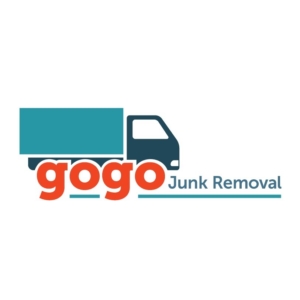12 Affordable Small Junk Removal Strategies for Businesses
Managing clutter in a business environment can be quite a task. With the growing need for optimizing space and maintaining organization, implementing efficient and affordable junk removal strategies is essential. In this guide, we’ll explore various methods that businesses can adopt to declutter their workspaces without breaking the bank.
1. Prioritize and Sort Your Junk
Start by categorizing items into what you need, what can be recycled, and what should be discarded. This process helps streamline the removal process and ensures that resources are directed towards the most significant areas. It’s important to be methodical during this process; rummaging through years of accumulated items can be overwhelming, but breaking it down into manageable sections will help. Once you’ve grouped them accordingly, make a checklist to keep track of progress and avoid re-cluttering in the future.
Implementing a labeling system for your inventory can further facilitate the organization and prioritization process. Use simple codes or color tags to quickly identify the status or need of each item. Additionally, involve team members in the sorting process, as collective participation not only makes the task lighter but also paves the way for innovative ideas on optimizing space usage in the office.
2. Embrace Recycling
Recycling is not only eco-friendly but also cost-effective. Identify recyclable materials and set up proper disposal bins throughout the office to make it easy for employees to contribute to the effort. Consider organizing workshops to educate employees on what can be recycled and how it should be disposed of. Doing this not only encourages active participation in recycling efforts but also ensures that employees are aware of the environmental impact of waste.
Some businesses have taken recycling a step further by setting up compost bins for biodegradable waste, which is particularly useful in offices with cafeteria services. Besides reducing landfill waste, composting can result in fertile soil, which can be used for office gardens or donated to community gardens, adding a layer of corporate responsibility to the company’s profile.
3. Coordinate With Local Disposal Services
Partner with local waste management services to schedule regular pickups. These services often offer discounts for businesses that schedule regular collections. It is essential to do some research and find a service provider that matches your business needs effectively. Not only do such partnerships reduce the workload involved in waste disposal, but being a regular customer might also open up avenues for additional perks such as holiday pickups or assistance with larger cleanup operations.
Moreover, some waste management services provide documentation and certificates for businesses that actively engage in environmental protection efforts. Such credentials can enhance your business’s reputation and attract eco-conscious customers and clients. Ensure that your chosen service is flexible to adjust frequencies as per need, especially during seasonal cleanups or office renovations.
4. Utilize Online Marketplaces
Consider selling items that are still in good condition on online marketplaces. This approach not only helps declutter but also offsets costs by bringing in some revenue. Platforms like eBay, Craigslist, or even niche ones like Facebook Marketplace allow you to reach a broad audience eager for a good bargain. It’s amazing how one person’s junk can truly be another’s treasure.
5. Host an Office Swap Day
Organize a day for employees to swap items they no longer need. This can reduce waste and allow items to find a new purpose within the office community. It’s a fun and frugal way to engage team members in sustainability initiatives while potentially refreshing their workspaces. Such events can be turned into social gatherings, promoting team bonding and a sense of shared purpose towards reducing waste.
6. Leverage Donation Options
Donate usable items to local charities or organizations. This not only helps those in need but is also an excellent way to build community relationships. Look for local shelters, schools, or non-profit groups that might benefit from furniture, electronics, or other items you no longer need. Many organizations are willing to pick up donations, making this approach both convenient and impactful in nurturing community goodwill.
7. Invest in Multi-purpose Furniture
Choosing furniture that serves multiple functions can reduce clutter. Look for options that offer storage solutions or can be easily repurposed. For example, benches with storage compartments, foldable desks, and convertible standing desks start serving dual purposes. Not only do such pieces save space, but they also discourage unnecessary accumulation, given their versatility and utility.
8. Consider Subscription-Based Removal Services
Subscription-based services provide regular removal support and can be cost-effective in the long term for businesses that frequently accumulate junk. Investigate companies offering such packages and see if a tailored plan aligns with your cleaning protocols. Consistency in removal schedules means less room for procrastination, a common issue when dealing with junk. Regularly cleared-out spaces naturally improve workflow and morale.
9. Schedule Regular Decluttering Sessions
Make junk removal a routine task. Regular sessions prevent the buildup of clutter and make the task less daunting over time. Approach these sessions as an opportunity for team-building, creating friendly competition in a ‘cleanest desk’ challenge. Such engagements highlight the importance of cleanliness while making it a habitual practice.
10. Encourage a Minimalist Work Culture
Promote a minimalist approach within the company. Encourage employees to keep their personal workspaces tidy, impacting overall office cleanliness positively. Fostering a minimalist environment improves productivity and cultivates a workspace where everyone knows the location of every needed item without having to rummage through piles of unused material. Provide tips and tricks through seminars or newsletters to motivate adoption of this lifestyle.
11. Outsource to a Junk Removal Company
If the clutter is overwhelming, professional removal companies can handle the whole process. Many offer affordable rates for businesses. These companies bring the expertise of dealing with different kinds of waste, providing not only efficiency but also compliance with local disposal laws. With them, you will have peace of mind that your discarded items are being handled responsibly.
12. Educate Employees on Best Practices
Conduct workshops or training sessions to teach employees the importance and methods of efficient junk removal, ensuring everyone is on the same page. Knowledge is power when it comes to waste management. Possessing awareness about minimizing waste generation, understanding disposal options, and recycling effectively is crucial in maintaining an organized and cost-effective office environment.




